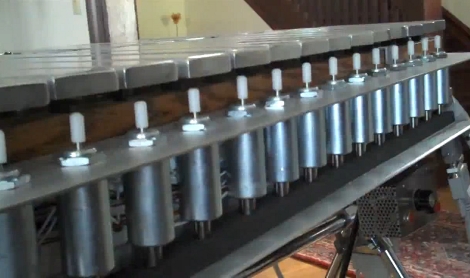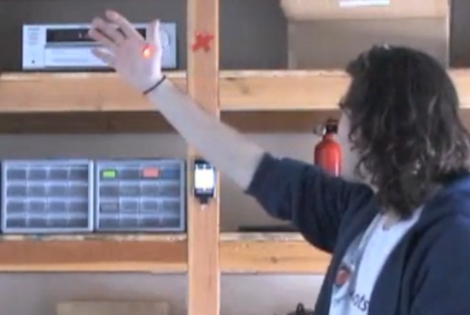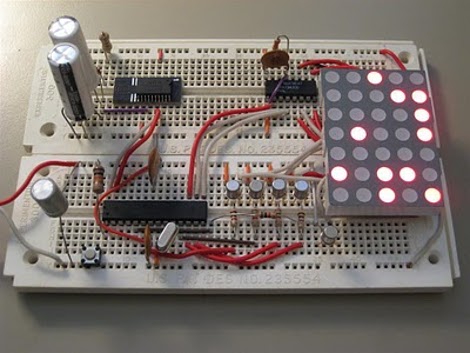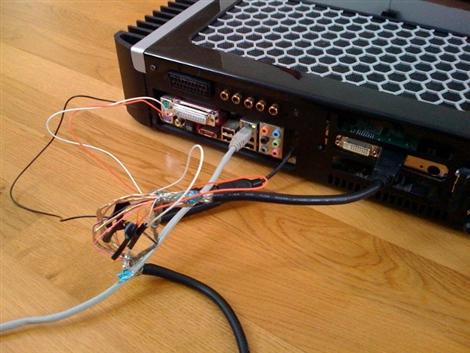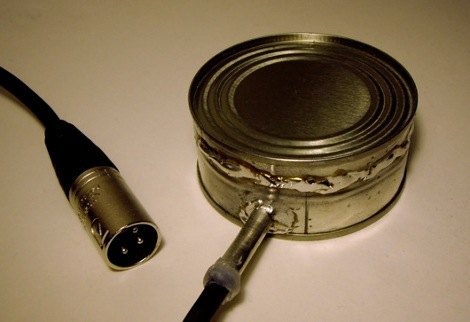
Buy stock in hot glue, this project corners the market on the stuff. [Leafcutter John] uses the hot goop as his water-proofer of choice when building an underwater microphone (also known as a hydrophone). By installing a couple of piezo elements on one lid of a tin can he is able to record some amazingly clear audio. This is aided by a pre-amp inside the metal enclosure. By cleaning off the clear coating from the inside of these steel can parts, he was able to solder the seams to keep the water out. In the end, coins are added for ballast and any remaining space is completely filled with hot glue.
He’s got a handful of example recordings on his project page. Here’s an what a running faucet sounds like from under water:

